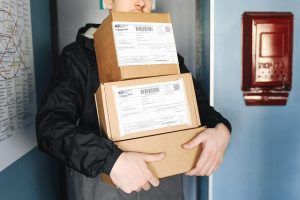By Scott Roth, Chief Executive Officer at LegitScript
The market for weight loss drugs is entering a golden age — or, as many participants in the healthcare arena see it, a gold rush. The effectiveness of new prescription drugs combined with a demand-based shortage has created a perfect storm that has manufacturers and retailers scrambling to cash in. But if popular health and wellness products of the past offer us any insight, it’s that demand begets both innovation and exploitation. A surging market can create opportunities for retailers but also put them and their consumers at risk of illicit, counterfeit, and dangerous products. The prospect of a gold rush always comes with the danger of fool’s gold.
The Demand for GLP-1s
It’s nearly impossible for some consumer demographics to scroll social media or browse the internet without encountering ads for glucagon-like peptide-1 receptor agonists (GLP-1s), drugs that reduce blood sugar and energy intake by activating the GLP-1 receptor. Initially created to treat type 2 diabetes but increasingly used for weight loss, brands like Ozempic and Mounjaro have flooded the public consciousness (and the online ad space).
After many brand name GLP-1s were placed on the FDA drug shortage list, specialized pharmacies were granted limited permission to compound semaglutide and other similar peptide-based drugs for patients seeking to use them for weight loss purposes. Large numbers of compounding pharmacies began creating their own versions of GLP-1s, often at a much lower price than the brand names. Compounded versions put these drugs within reach of more consumers, which has helped spur even more demand. Nearly all top telemedicine companies have pivoted to offering semaglutide, a type of GLP-1 drug.
The Current GLP-1 Market: At a Crossroads
The FDA’s allowance for manufacturers to create compounded versions of GLP-1s lasts only as long as there is scarcity, and the administration has begun to remove the affected GLP-1s from its shortage list. The FDA has announced that the shortage of tirzepatide, the active ingredient in Mounjaro and Zepbound, has been resolved, and shortages of other GLP-1s are also poised to be resolved in the near future. That means millions of patients will soon potentially lose access to cheaper, but less regulated, alternatives to the brand name drugs.
High demand and reduced availability created the perfect environment for bad actors to flood the market with unapproved and potentially unsafe products. As seen during past waves of popular drugs and wellness products, the shortage will likely result in fraud, scams, and illicit sales. The onus is now on e-commerce marketplaces, payment service providers, and advertising platforms to step up and ensure violative, potentially dangerous products don’t infiltrate their ecosystems.
Looking at Past Drug Booms Provides Valuable Lessons for the Road Ahead
- Viagra: The Boom of the 2010’s
Viagra’s growth during the 2010s was fueled by social and mainstream media attention, leading to heightened demand. With increased demand came an increase in fraud, especially in the form of counterfeit drugs. In 2011, a Pfizer study found that 80% of Viagra online purchases were counterfeit. Consumers seeking affordable alternatives found themselves purchasing dangerous, unverified medications, usually sold without the required prescription. This created a public health risk while also damaging trust in legitimate online pharmacies.
- CBD: The 2018 Farm Bill and Its Aftermath
The passage of the 2018 Farm Bill, which legalized certain forms of hemp-derived CBD, triggered a surge of untested, low-quality, or falsely advertised products being sold to consumers. A study immediately following legalization found that 67% of tested CBD products had massive potency deviations; 7% of tested CBD products contained harmful heavy metals or solvents; and 98% of surveyed CBD merchants were operating out of compliance. Since then, the FDA has released nearly 20 statements on activities relating to problematic online CBD sales, citing potency deviations, compliance failures, and misbranding as common violations. Without comprehensive oversight, many CBD products made misleading health claims, and bad actors took advantage of the regulatory ambiguity to push harmful products. The result was consumer confusion, increased scrutiny from regulatory bodies, and reputational harm to platforms that allowed these products to thrive.
- Pandemic-Related Drugs
During the height of the COVID-19 pandemic, chloroquine and hydroxychloroquine became household names because of unverified claims of their effectiveness in treating the virus. This led to a spike in demand, with online platforms overwhelmed by problematic sellers taking advantage of vulnerable consumers by offering unapproved versions of these drugs sold for improper purposes.
What to Watch Out for With GLP-1s
Once the FDA’s compounding allowance for GLP-1s ends, here’s what to expect:
- Illicit compounding: While legitimate compounders and telemedicine companies will stop creating the duplicates of the drugs, problematic compounding, may continue to create “generic” versions to sell to US customers. These are unapproved for use in the US and may be subject to other quality and compliance concerns.
- Counterfeits: Some bad actors, often located overseas, may sell counterfeit or unapproved versions of popular brand names, possibly replicating the packaging that may contain illicit versions of the drug or something else entirely. For example, counterfeit weight loss drugs, including Ozempic, sold to customers through unofficial channels were misbranded and some contained harmful bacteria that resulted in lesions.
- Scams: Some bad actors may set up websites and product listings to sell brand name GLP-1 drugs at a discount, but in actuality they will not ship anything to customers (called a nondelivery scheme).
- Problematic claims: Sellers of other products, like yellow oleander supplements, will make misleading claims that their products are “natural alternatives” to prescription drugs and that they can treat obesity and diabetes. Supplements and other non-drug products cannot claim to treat, prevent, or mitigate diseases.
The Need for Monitoring and Certification
Past popularity surges in drugs and other wellness products offer a cautionary tale: as demand rises, so does the potential for dangerous, unregulated products to infiltrate the market. In the case of GLP-1 drugs, marketplaces, payment service providers, and e-commerce platforms must take proactive steps to prevent history from repeating itself.
Robust monitoring of sellers and products is one of the most effective ways to mitigate this risk. Advanced technologies, such as AI-powered data analysis, are balanced with expert analysts to help businesses track trends in real time, identify high-risk merchants, and remove potential violations before they escalate. This level of oversight is essential in ensuring that harmful merchants, ads, and product listings are swiftly removed from platforms, protecting consumers and the reputation of legitimate businesses.
Certification is another crucial piece of the puzzle. It provides a clear, verifiable signal that merchants operating in highly regulated industries adhere to the strict, often evolving regulatory guidelines and comply with jurisdictional requirements. When online pharmacies, telehealth providers, and other healthcare merchants get certified, they can build trust with consumers, work more easily with third parties such as payments companies, and take advantage of advertising opportunities on major online platforms.
Keeping Consumers Safe
Finally, it’s important to consider the patient’s perspective. With so many unverified products circulating, consumers must be vigilant when purchasing medications online. They should look for certified sellers, avoid deals that seem too good to be true, and always verify the legitimacy of the products they buy.
The surge in demand for these medications has created fertile ground for unscrupulous advertisers and merchants to introduce unsafe and counterfeit products. Rigorous monitoring of platforms and payment portfolios, merchant certification, and consumer education will protect patients, safeguard the market’s integrity, and avoid the pitfalls seen in previous product booms. It’s time to prioritize consumer safety and ensure that the GLP-1 market remains a reliable and trustworthy source of essential healthcare.
About the author

As CEO, Scott sets LegitScript’s strategic vision, oversees day-to-day operations, and ensures the ongoing business performance of the company. As a leader in merchant and product certification and monitoring in the advertising, e-commerce, and payment sectors, Scott’s team has seen both a rapid rise in demand for Healthcare Certification by businesses offering compounded GLP-1 drugs, as well as a sharp increase in problematic GLP-1 products being peddled online that are violating laws across jurisdictions worldwide and potentially endangering unsuspecting consumers. Over the course of his 20+ year career, Scott has held several leadership positions with high-growth SaaS, internet, and data companies such as Salesforce, ExactTarget, and Return Path. He is a committed volunteer in the Portland community and serves on the board of POIC + RAHS, an accredited alternative high school, youth mentoring, and job training organization.
NEW YORK – August 28, 2024 – Fiverr International Ltd. (NYSE: FVRR), the company that is changing how the world works together, today released research exploring retailers’ readiness for the upcoming holiday season. Fiverr conducted a global survey of over 2,500 consumers and over 2,500 small-to-medium business leaders (excluding sole traders) in partnership with Censuswide. The findings reveal a more strategic approach to how businesses manage marketing efforts, freelance talent, and AI technologies as they look to level the playing field against larger e-commerce brands while also capturing Gen-Zers’ shopping habits and grappling with the economic hurdles like inflation.
“The holidays are often make-or-break for many small businesses, so it is critical to plan ahead, know where to place your focus and ensure that your audience is getting the right message,” said Gali Arnon, Chief Business Officer at Fiverr. “This data shows that retail and e-commerce businesses are doubling down on social media campaigns to reach new markets and embracing AI to streamline their daily operations as more and more consumers are looking to buy the perfect gift as far ahead of the holiday season as possible. With inflation, competition, and staffing shortages intensifying both online and in stores, the insights from our latest research underscore the type of expertise businesses need to stay ahead. Demand is up for experts with AI skills, digital marketing, and social media to maintain loyal customers and reach new audiences near and far.”
Several trends that emerged from the data include:
Smaller retailers have found their place among larger companies like Amazon and Temu with 53% of surveyed businesses not considering competition from larger e-commerce brands as a challenge this year
Inflation becomes the predominant concern for businesses, with 48% of global respondents citing it as their primary challenge
A third of retailers surveyed cite staffing shortages ahead of the holiday season, simultaneously, a third of retail and ecommerce businesses are now hiring freelancers to support their operations
Surveyed retailers are investing in various strategies to reach new audiences – ranging from increased social media presences to steep discounts – and to satisfy evolving customer attitudes
Compared to last year (55%) over 80% of businesses are now offering discounts on their products to satisfy the deal-hunters
Customers are continuing to prioritize good deals (42%), free shipping (32%), and high-quality products (30%)
Last minute shopping remains a priority as well, with 18% of global respondents focusing on fast shipping times
52% of people surveyed will start buying presents in October and November while 18% are hitting the summer sales to find gifts
Digital marketing remains the key to success for retailers and ecommerce brands this holiday season, as more and more Gen-Zers are willing to spend more on gifts they find online
43% of Gen-Zers are planning to spend more this holiday season, compared to the 37% of millennials that plan to do to same
57% of U.S. retailers surveyed are investing in social media ads to reach their target audiences
Global surveyed retailers are investing in: 39% social media ads, 35% in influencer marketing campaigns, 33% email marketing, 29% updated product pages and improved SEO functionalities
Social media remains the go-to place for Gen-Zers looking for the perfect gift this holiday season
Amongst Gen-Zers: 34% use TikTok shop; 25% get their gift ideas through social media influencers’ recommendations; and 14% use generative AI search to help with gift buying
In the U.S., TikTok shop continues its dominance – nearly 54% of Gen-Zers find their gifts on this platform alone
Surveyed U.S. Gen-Zers also cite social media as a major influence in their holiday shopping – a third of respondents plan to find gifts via Facebook and Instagram ads, and nearly a quarter (24%) through influencer recommendations
With shopping increasingly moving online, nearly 7 in 10 retailers (68%) surveyed are now implementing AI throughout their operations this holiday season – and they want Gen Z to take notice
41% of retailers surveyed planning to invest in AI tools to expedite work, and 35% who want to embed AI throughout the entire customer journey with chatbots, customer personalization, or customized marketing campaigns
AI is already becoming second nature for Gen Z, over 54% of Gen-Zers use AI to assist in their holiday shopping – whether it be to find the best prices (17%), find new gift ideas (22%), or to even create holiday presents themselves (18%)
Methodology
Global Consumer Research: The research was conducted by Censuswide, among a sample of 2,539 nationally representative consumers across the USA, UK, Germany, France, and Australia. The data was collected between 26.07.2024 – 30.07.2024. Censuswide abides by and employs members of the Market Research Society and follows the MRS code of conduct which is based on the ESOMAR principles.
Global Business Research: The research was conducted by Censuswide, among a sample of 2,508 SME owners/leaders (aged 18+) in Retail or E-commerce across the USA, UK, France, Germany and Australia (excluding sole traders). The data was collected between 27.07.2024 – 05.08.2024. Censuswide abides by and employs members of the Market Research Society and follows the MRS code of conduct which is based on the ESOMAR principles.
About Fiverr
Fiverr’s mission is to change how the world works together. We exist to democratize access to talent and to provide talent with access to opportunities so anyone can grow their business, brand, or dreams. From small businesses to Fortune 500, around 4 million customers worldwide worked with freelance talent on Fiverr in the past year, ensuring their workforces remain flexible, adaptive, and agile. With Fiverr Business Solutions, large companies can find the right talent and tools, tailored to their needs to help them thrive and grow. On Fiverr, you can find over 700 skills, ranging from programming to 3D design, digital marketing to content creation, from video animation to architecture.
Related Articles

Beyond the AI Hype: Why Retailers Are Doubling Down on Real-time Inventory
AI assistants can now take shoppers from search to checkout and breeze right past a merchant’s website. The traditional product discovery and purchasing journey are now happening inside AI channels, and major platforms are all aligning on this new shopping protocol.

How to Manage Your Amazon Seller Account Effectively in 2026?
Learn key strategies for managing your Amazon seller account in 2026, including listing optimization, account health management, inventory control, and advertising.

Transaction-Level Data Is Raising the Bar for Attribution and Accountability
For retailers building or scaling retail media and broader commerce marketing programs, this shift reshapes how audiences should be built and forces a more disciplined approach to transparency and cross-channel accountability.

How Rising Consent Awareness Is Reshaping Customer Experience, Data Quality, and Campaign Performance
It also revealed that another 35% expect to deploy personalized AI recommendations in the next year, as AI moves from pilots into the heart of omnichannel journeys, search and merchandising.


 for the latest news and job opportunities in retail tech
for the latest news and job opportunities in retail tech 